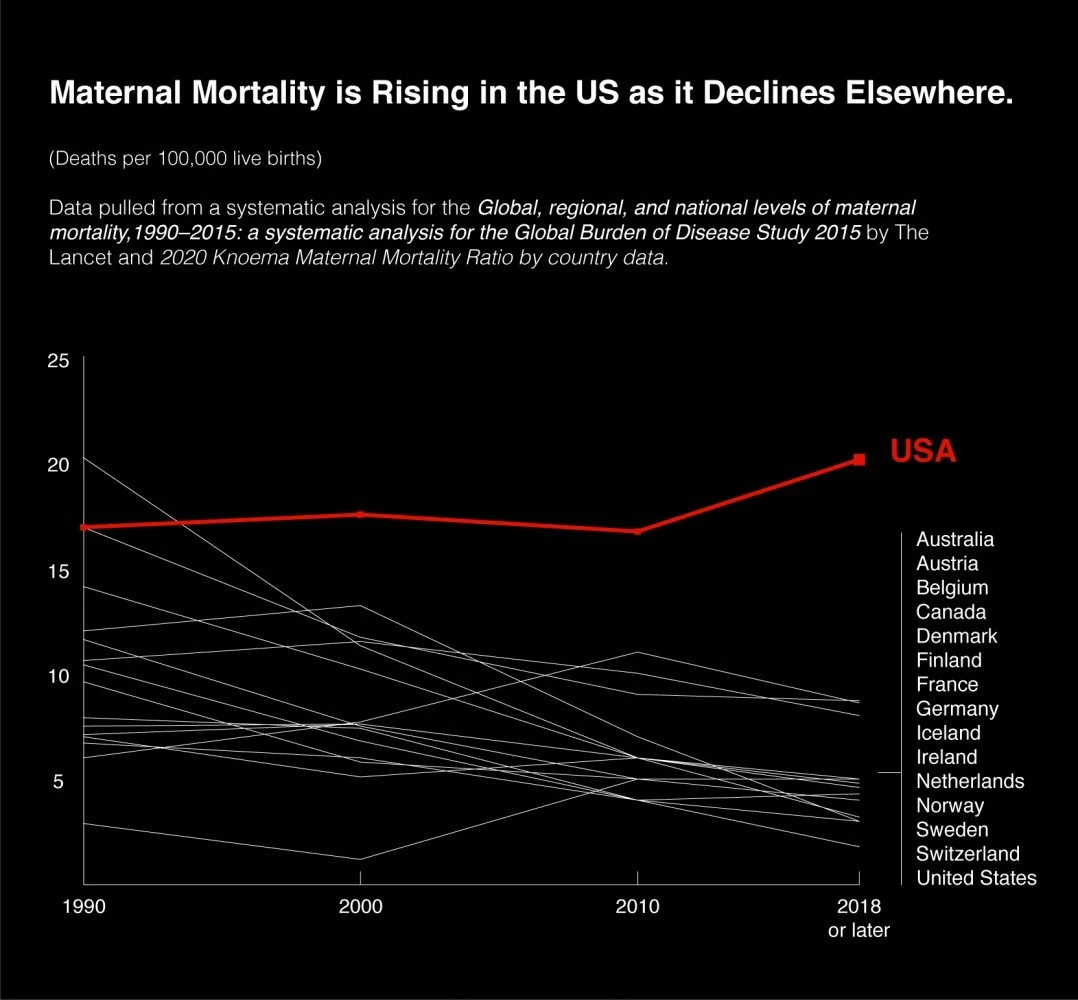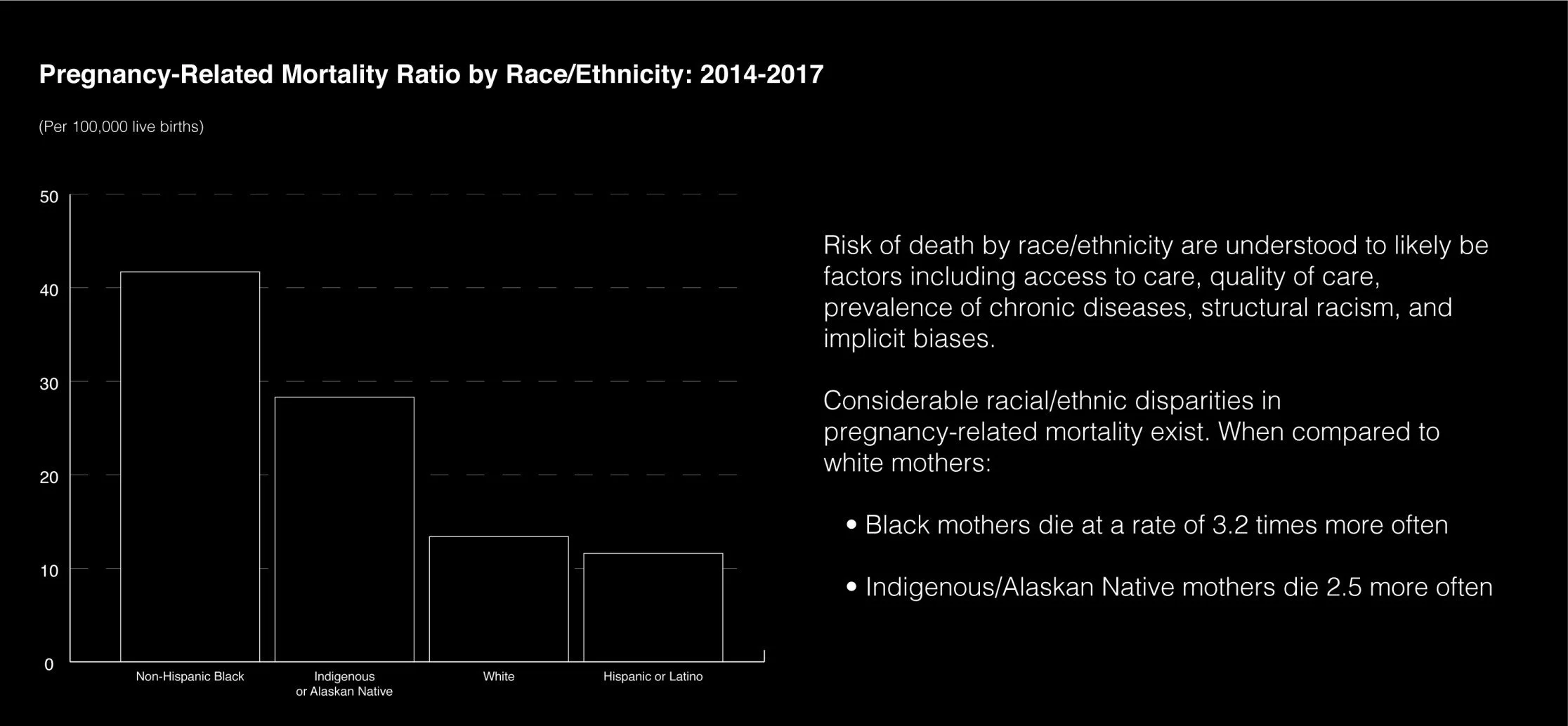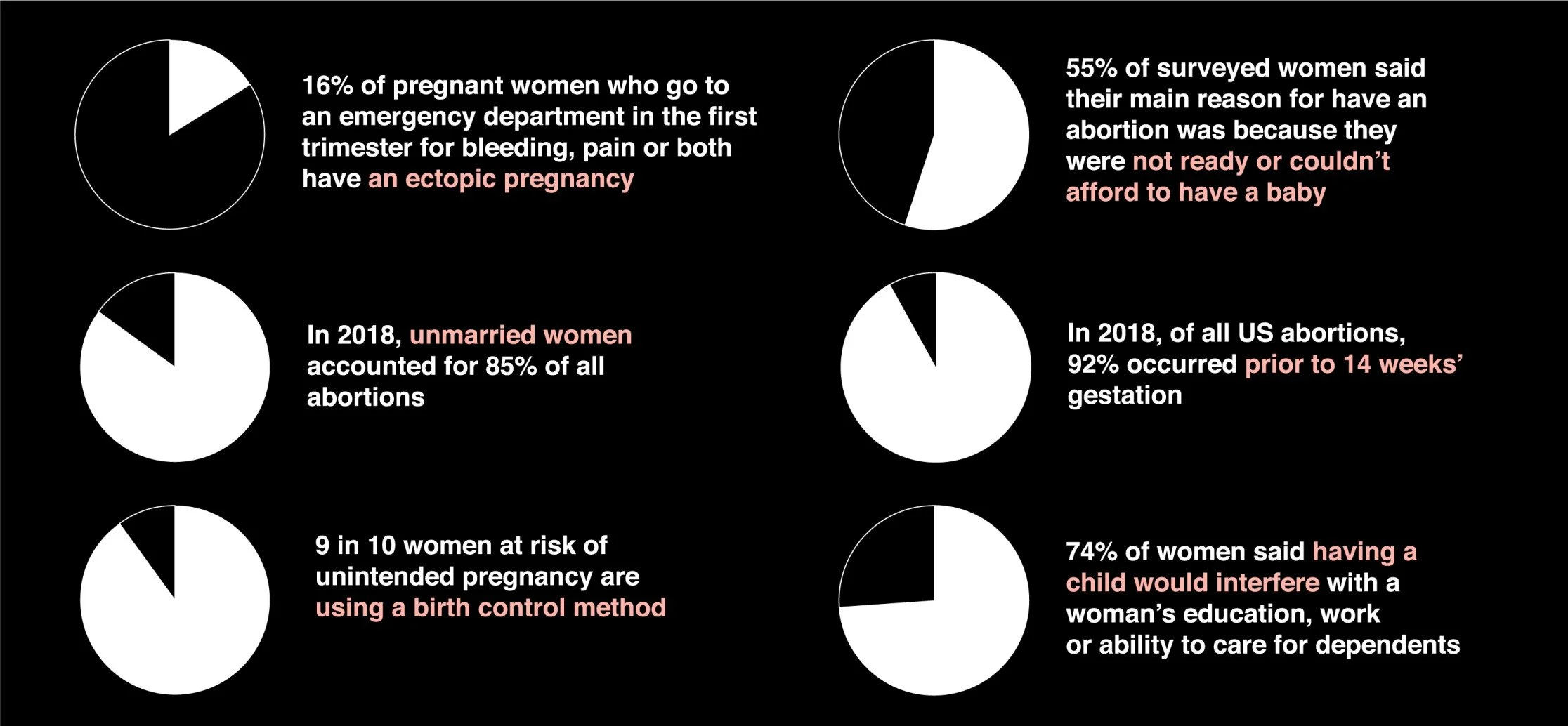Texas has the highest rate of maternal mortality in the country, and rates continue to rise throughout the nation while decreasing in almost every other industrialized country in the world.
Why? I volunteered for a nonprofit organization that supports mothers in the greater Dallas area. Here’s what I learned.
Data sources: The Lancet and Knoema
Sad Stats of Systemic Failure.
Despite spending more per capita on healthcare than any other country, maternal health will continue be a challenge. The Supreme Court's failure to support body autonomy in its ban on abortion rights has put women in Texas at an even greater deficit when it comes to accessing adequate maternal healthcare.
I struggled while researching this, not because there was a lack of statistics but because the statistics were so awful. It is an unconstitutional nightmare – an overlap of systemic discrimination and medical neglect, where there is often not access to equitable or affordable healthcare.
Unsafe Restrictions
To further complicate matters, as of September 1, 2021, abortion is illegal in Texas once a fetal heartbeat can be detected. The U.S. Supreme Court failure to intervene and block Texas’ six-week abortion ban also comes with a new, uniquely cruel twist that allows anyone who is opposed to abortion—regardless of where they live or whether they have any association with a patient—to sue an abortion provider or anyone who helps a patient obtain an abortion, such as by providing financial help or transportation.
This debate is one of human rights. Such restrictive abortion laws violate women’s rights, including the right to life, to health, to equality, to privacy, and to live free from discrimination.
Guttmacher Institute’s conducted interviews to better understand different reasons for having abortions, and thereafter inform public debate and policy regarding abortion and unwanted pregnancy. The three most frequently stated reasons were the same as in the structured survey: the dramatic impact a baby would have on the women's lives or the lives of their other children, financial concerns, and their current relationship or fear of single motherhood. Possible problems affecting the health of the fetus or both are also commonly cited as a reason for terminating the pregnancy².
These laws serve no medical purpose but, instead, seek to dissuade pregnant people from exercising their fundamental right. Restricting abortion only makes it less safe
While abortion care is one of the world’s safest medical procedures, policy and legal restrictions continue to prevent women and pregnant people from accessing safe care. Too many women are still denied their right to determine their own future.
Pandemic Impact and 2021 Policies
America's already dysfunctional healthcare system saw a considerably concerning increase in maternal mortality and stillbirths in the first 18 months of the COVID19 Pandemic⁴, particularly in low-resource settings and among the most discriminated women in the country: black women.
Under the guise of needing to preserve medical supplies and deeming these procedures as not ““immediately, medically necessary”⁵, Texas officials began a crack down on abortions at the beginning of 2021. This forced many Texans to go out of state to receive abortions - a huge leap from 157 residents in February, to 947 residents in April.
To further complicate matters, as of September 1, 2021, abortion is illegal in Texas once a fetal heartbeat can be detected⁶. The U.S. Supreme Court failure to intervene and block Texas’ six-week abortion ban also comes with a new, uniquely cruel twist: the introduction of $10k abortion bounties⁷. Regardless of where they live or whether they have any association with a patient, anyone who opposes the procedure is able to sue an abortion provider, or anyone who helps a patient obtain an abortion, such as by providing financial help or transportation. Keep in mind the average cost for a first-trimester abortion is about $500, and a family can benefit from 12 months of postpartum support for $5,800.
This policy extends government-subsidized Medicaid coverage to 6 months instead of just 2 months, but it's still not enough.
It is debate of human rights. Such restrictive abortion laws violate women’s rights, including the right to life, to health, to equality, to privacy, and to live free from discrimination.
Guttmacher Institute’s conducted in-depth interviews, to increase understanding around women's reasons for having abortions can inform public debate and policy regarding abortion and unwanted pregnancy. The three most frequently stated reasons were the same as in the structured survey: the dramatic impact a baby would have on the women's lives or the lives of their other children, financial concerns, and their current relationship or fear of single motherhood. Possible problems affecting the health of the fetus or both are also commonly cited as a reason for terminating the pregnancy.
The well-being of mothers and babies should be a top policy priority in all countries.
Women need to be adequately supported in their choices through pregnancy, and mothers need to be covered for the myriad health issues that can arise months after giving birth so that we can globally achieve equity throughout the full spectrum of maternal outcomes.
Footnotes
¹ Maternal Mortality and Maternity Care in the United States Compared to 10 Other Developed Countries, Published November 2020
² Reasons U.S. Women Have Abortions: Quantitative and Qualitative Perspectives, Published September 2005
³ WHO issues new guidelines on abortion to help countries deliver lifesaving care, Published March 2022
⁴ COVID-19 and maternal and perinatal outcomes, Published August 2021.
⁵ Governor Abbott Issues Executive Order Increasing Hospital Capacity, Announces Supply Chain Strike Force For COVID-19 Response, Published March 2020
⁶ Texas's near-total abortion ban takes effect after Supreme Court inaction, Published September 2021
⁷ Texas now has abortion ‘bounty hunters’: read Sonia Sotomayor’s scathing legal dissent, Published September 2021



